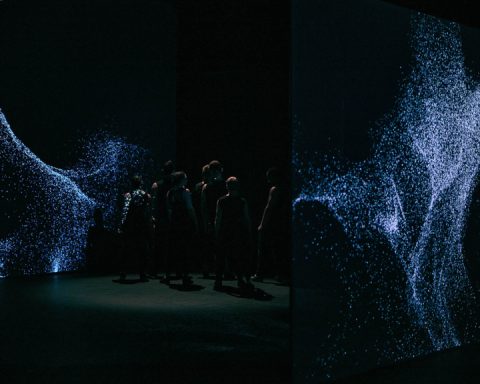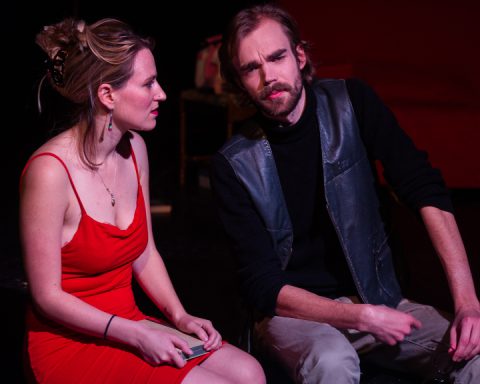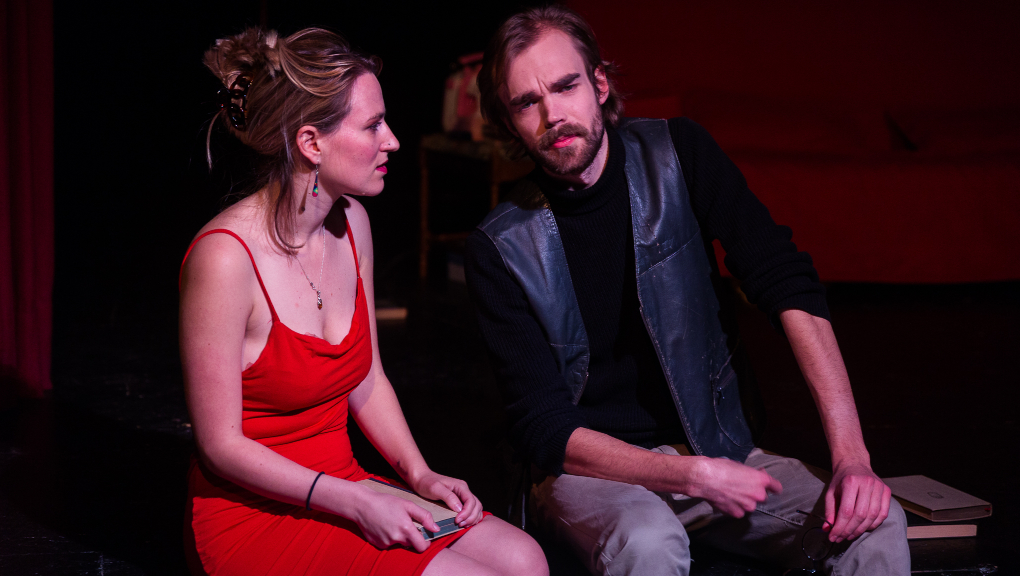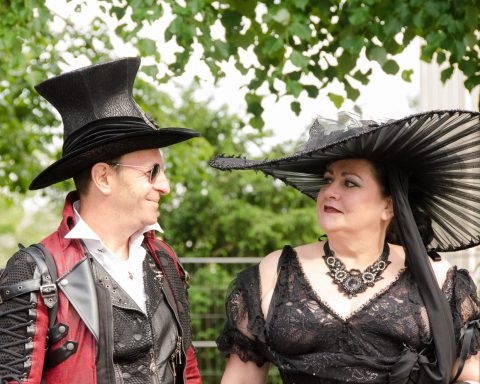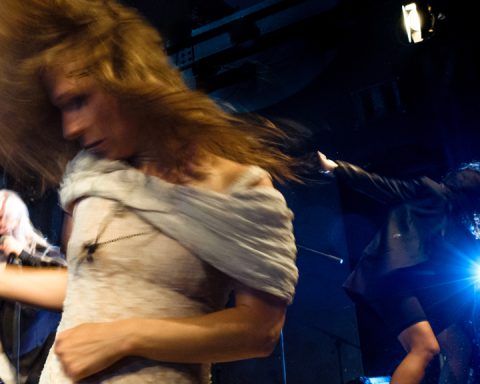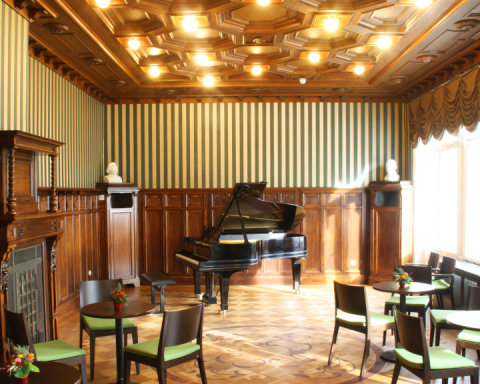Shaking with emotion, the singer places her mobile phone on the music stand. She picks up the microphone. The Leipzig Gewandhaus is hushed and tense. Struggling to hold her voice steady, the young woman in western dress sings the lyrics relayed to her phone via Twitter. It is a new protest song direct from the streets of Tehran, and the singer is an Iranian in exile – Mahjabin Kavari.
Kavari explains that she has added this impromptu anthem to her repertoire in solidarity with her fellow countrywomen and men. They have been protesting for weeks, following the death in police custody of Mahsa Amini. The Morality Police arrested twenty-two-year-old Amini for not wearing her headscarf correctly according to the strict rules of the dictatorship. Since her death, approximately 400 demonstrators have also been killed, according to Oslo-based human rights group, Iran Human Rights. Many more are in prison.
Certainly, Mahjabin Kavari would not win the approval of those agents of the Iranian state.
Her short, fringed black dress ends well above the knees and her hair is uncovered and styled in a short bob. It is risky for her to sing that song and to speak out at a concert against the regime.
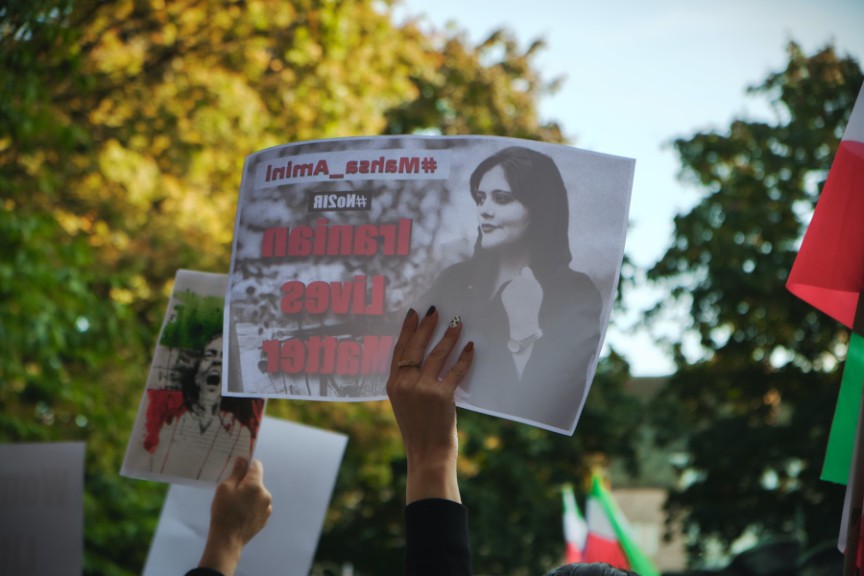
Yet not only the song, but also the band is a living embodiment of solidarity. Composed half of Iranians and half of Israeli musicians, Sistanagila strives to bring audiences together across cultures. The name is made up of two words – Sistan is a region in eastern Iran and nagila comes from Hava Nagila. It is a Hebrew celebratory song sung at weddings and religious festivals in Israel. Half the songs are in Hebrew and half in Persian. The melodies are either drawn from the different traditions or they are original compositions created by band members.
Shabbat Shalom is a song by double bassist Avi Albers Ben Chamo. It evokes the love of a mother for her son as they sit down for the weekly eve-of-Sabbath meal. Iranian Jawad Salkhordeh plays a traditional Persian tombak in a rousing drum solo which includes hundreds of different tones. These are variously made by banging, scraping, scratching, stroking, tapping and fingering the drum. It fills the Mendelsohn Hall with just one instrument – his own intense and powerful percussive song.
An original melody by guitarist Hemad Darabi combines elements of traditional music from both cultures.
But it has a German name, Rostock. That is an homage to the Baltic coastal city where it was first performed, then untitled. The name has stuck. There is even a new multi-cultural suite, called The Four Oriental Seasons. At the Leipzig concert, and on the new EP of this work, the Berlin Philharmonic first violin, Guy Braunstein, performs the opening to this evocative work. He practically brings the house down.

Guy Braunstein is world-famous as the former first violin and leader of the orchestra at the Berlin Philharmonic. Born in Tel Aviv, he is also known as artistic director of the ClasClas music festival in Galicia, Spain and has performed with the BBC Symphony Orchestra. The story of how he became involved with Sistanagila is a funny anecdote. It was narrated on stage by the band’s singer, Yuval Halpern.
“We advertised in e-Bay Small Ads for a violinist so that we could perform The Oriental Four Seasons. Imagine our surprise when one of the replies came from Guy Braunstein!”
As well as saluting the famous violinist, Halpern also welcomes Sistanagila founder, Babak Shafian, onto the stage. The band celebrates ten years since the exiled computer programmer invented the ensemble. He decided to leave his native Iran in 2005 when the government began to spread hate against the Jews. In an interview for the Deutschlandfunk radio network, Shafian explains:
“I have the privilege of being able to live abroad. And I have used this opportunity to say no, that is not my opinion and that is not the opinion of many Iranians. I will have no part in it. I will even do the opposite – I will seek dialogue with Israelis.”
That musical dialogue has already lasted for ten years – a decade in which solidarity with the people of Iran has become ever more crucial.


